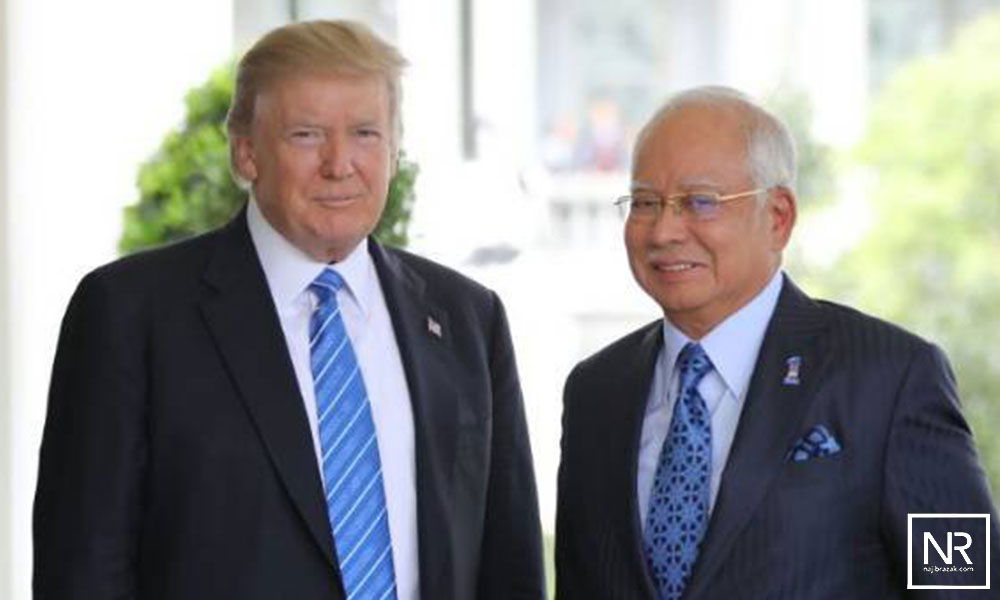
Cash, on its own, has no intrinsic value. It is just a piece of paper. The value of cash, however, is immediately transformed when it is backed by precious metals, such as gold or silver.
This would be a system of exchange that fell within the dictate of Islamic laws in order to curb wild and blind speculation. Of course, these days you have fiat money.
During the mid-17th century, for example, the price of Dutch tulips, which were imported from Ottoman Turkey or planted as cash crops in the Netherlands, went berserk. A few tulips alone were pricier than the actual value of gold.
When former premier Dr Mahathir Mohamad critiqued the fallacy of Prime Minister Najib Abdul Razak's "cash is king" approach, he was doing it from three standpoints.
Morally, and ethically, one's services to God, nation and country should not be incentivised by the pursuit of cash, and more cash. The latter then becomes a block chain of greed which the country cannot overcome.
And if cash is borrowed in large sums, as was done in 1MDB and various mega-projects supported through loans by China, then cash consumed now becomes future liabilities and debts.
Cash, in this sense, can become bad debts to rule over Malaysia, at which point, the country will have to be in permanent servitude; either to the banks that did the lending, or to the countries that got Malaysia hooked on debts. We have seen how debt entrapment works. Thus, “cash is king” carries serious strategic implications.
In Washington DC, Najib’s "cash is king," approach, as Mahathir rightly pointed out, was on full display. Najib pledged more than RM100 billion ringgit in a recorded six-minute session with US President Donald Trump.
If the six-minute session cannot be used as a benchmark, then the press statement of the joint comprehensive partnership between the US and Malaysia must be one of the most expensive documents in the history of international relations.
In that document, Najib agreed with Trump on North Korea, Islamic State, Abu Sayyaf, the threat of cyber-espionage per the Budapest Convention and many more items which require Malaysia to pay everything upfront - potentially even the Fulbright English teaching assistants programmes.
Ringgit’s shrinkage
When "cash is king" and Najib has no strategic concept of how the value of cash can fluctuate, the ringgit’s value is set aside too.
At the meeting with Trump in the White House, the ringgit’s shrinkage was not mentioned. Instead, Najib quoted all the investment deals in greenback, i.e. US dollars.
Najib, as the finance minister, paid zero attention to the risks and dangers posed by the US dollar whose actual value is pegged to US dominating all corners of the world - as compared to a US dollar that is pegged to actual gold or backed by the Bretton Woods system.
In other words, Najib was encouraging the US, invariably Trump, to go down the same road of using its hard power in every corner of the world. This was most obvious when Najib said that the US’ enemies are Malaysia's enemies too.
When the US goes down that path, the US has to go to eyeball to eyeball with North Korea and even China - all of which will make the ringgit shrink further. As a trade-dependent country, when the US economy or US dollar strengthens, Malaysia will experience a whiplash reaction, especially when 80 percent of our exports are normally denominated in US dollars to defray the financial risk.
Thus by throwing money around in the US, Malaysia is exposing itself to various strategic undercurrents. As Mahathir said, when the US needs more money, they can print more through quantitative easing, and they will overcome their recessions on a whim.
But as they print more US dollars, the Malaysian economy can face a potential influx of “easy” and “hot” money from US. Thus our ringgit’s value will fluctuate wildly.
“Cash is king” is used by Najib in Malaysia as handouts to the Malaysian electorate to entrench his political support in Umno. When used in the White House, the “cash is king” approach could bankrupt the vaults in Malaysia.
RAIS HUSSIN is a supreme council member of Parti Pribumi Bersatu Malaysia (PPBM). He also heads the Policy and Strategy Bureau of PPBM.- Mkini



No comments:
Post a Comment
Note: Only a member of this blog may post a comment.